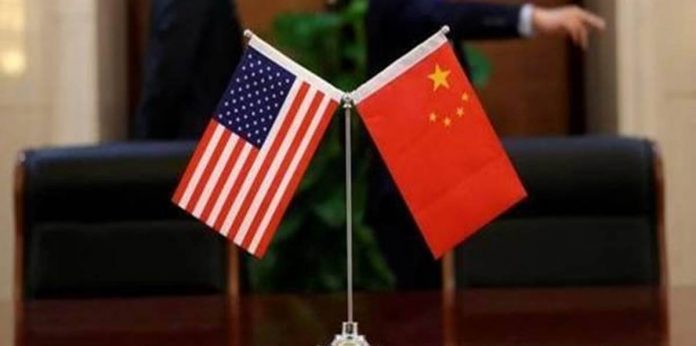The Department of Commerce of President Joe Biden has sided in favor of Chinese solar producers who are located in Malaysia, Thailand, and Vietnam. This denial denied a request for an investigation into the manufacturers’ attempts to evade US tariffs on Chinese goods.
The Biden administration stopped a campaign by American manufacturers of solar panels to impose tariffs on products made in China by Chinese manufacturers. These manufacturers have moved their production to other countries nearby to avoid U.S. tariffs. Coalition for a Prosperous America CEO Michael Stumo stated that the Commerce Department’s inability to investigate illegal circumvention by Chinese companies is a gift for the Chinese Communist Party.
Biden had promised to create 10,000,000 green jobs. This decision will ensure that China’s continued use of Uyghur labor in Xinjiang for the manufacture of polysilicon. Although the Biden administration claims it wants to Build Back Better and increase U.S. manufacturing, a decision like this which only benefits the Chinese Communist Party shows that the Build Back Better initiative has become nothing more than a slogan. [Emphasis added]
American Solar Manufacturers Against Chinese Ccumvention is a group of domestic manufacturers that filed a petition to the Biden administration in August asking for an investigation into whether Chinese solar producers were illegally moving production to Malaysia, Thailand, or Vietnam to avoid tariffs.
Twelve Senate Democrats lobbied for Biden and sent a letter asking that the administration not impose tariffs on products made in Vietnam, Thailand, or Malaysia by Chinese solar producers.
The Senate Democrats stated that new tariffs on solar products from these countries would stop many planned and ongoing U.S. projects. This would negatively impact every sector of the U.S. industry and result in substantial job losses.
The letter was signed by Sens. Jacky Rosen (D-NV), Tom Carper (D-DE), Angus King (D-ME), Michael Bennet (D-CO), Martin Heinrich (D-NM), Sheldon Whitehouse (D-RI), Dianne Feinstein (D-CA), Jack Reed (D-RI), Brian Schatz (D-HI), Mazie Hirono (D-HI), Tim Kaine (D-VA), and John Hickenlooper (D-CO).
This was a result of lobbying by Democrats and votes from 32 House and Senate Republicans that backed Biden’s infrastructure bill. It also highlights the political commitment to offshoring manufacturing and foreign imports among both political parties. For example, the infrastructure bill provides massive “Buy American” waivers to industries that can produce materials overseas for projects, provided they receive approval from federal agencies.
John Katko (R–NY), Don Bacon, (R–NE), Jeff Van Drew and Fred Upton (R–MI), Adam Kinzinger(R–IL), Don Young (R–AK), Tom Reed (R–NY), Chris Smith [R–NJ], Andrew Garbarino (“R–NY”), Nicole Malliotakis (“R–NY”), Brian Fitzpatrick’s (R–PA), Anthony Gonzalez “R–OH” and David McKinley — all
The 19 Senate Republicans who voted in favor of the bill were Dan Sullivan (R–AK), Shelley Moore Capito, (R–WV), Mike Crapo(R–ID), Roy Blunt (“R–MO”), Richard Burr (“R–NC”) Deb Fischer (R–NE), Lindsey Graham [R–SC], Thom Tillis “R–NC”), Lisa Murkowski (R–AK), Jim Risch” (R–ID), Chuck Grassley (1R–MS), Roger Wicker (3R–MS), John Hoeven) Susan Collins (R–ND), John Hoeven” (R–ND), John Hoeven (“R–ND”), John Hoeven (R–ND), Susan Collins (R–ME), Susan Collins (R–ND), John Hoeven (R–ND), John Hoeven (R–ND), John Hoeven (R–ND), John Hoeven (R–ME), Susan Collins (R–ME), Susan Collins (R–ME), Mitt Romney (1R–UT), Mitt
Between 2001 and 2018, the U.S. has free trade with China, resulting in at least a 3.7million American jobs being lost. The U.S. trade deficit against China was $6 billion in 1985, just before China joined the WTO. The U.S. trade deficit against China was more than $345 Billion in 2019.
In 2020, the U.S. trade deficit for goods was a record 915.8 billion. According to research, every $1 billion of imports from a country other than the United States leads to American job losses. American manufacturing is still vital for the U.S. economy. Every manufacturing job supports 7.4 jobs in other sectors.
© Copyright 2026. Conservative Research Group. All Rights Reserved.


